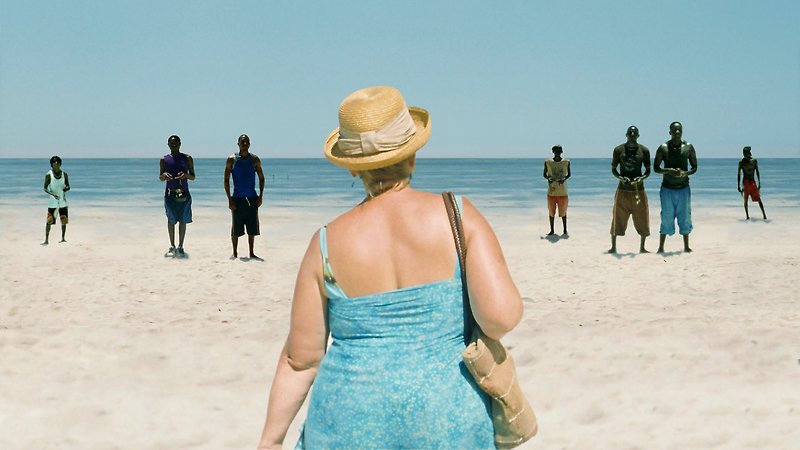An Austrian woman in Kenya plays 'Sugar Mama’ to assorted beach boys in this provocative take on exotic romance.

A ruthless exploration of how unlike our everyday selves we can behave when we’re ‘on holiday’.
Screened as part of NZIFF 2013
PARADISE Love 2012
PARADIES: Liebe
Teresa, an Austrian woman of a certain age, takes time out from her taxing work in handicapped care and heads to a beach resort in Kenya. A fellow tourist encourages her to play ‘Sugar Mama’ to one or more of the young men panhandling on the beach. Abetted by a cast of big white women and svelte black men, none daunted by frequent nudity, Seidl squarely confronts the mess of exploitation, racism, opportunism, objectification and longing that unravels when his lonely protagonist takes the bait. Seidl’s vision of social disintegration is severely personal, as always, but more explicitly political and more poignant in its awkwardness than anything we’ve seen from him before.
“Teresa is an utterly convincing character. Her reserve tanks of anger, strength, and self-possession keep PARADISE: Love from ever becoming a simple morality tale. In fact, her capacity for humiliation is nearly heroic. Seidl’s unblinking perspective can seem cruel – Tiesel and the rest of the film’s lunging Euro Moms have no secrets from us – but this is Seidl at his most powerful and humane, in a Diane Arbus kind of way, bringing us intimately close to characters movies otherwise exclude… [The] attention and respect for [Teresa’s] reality feels generous and loving, too… This is an anti-daydream, a welcome countercharge to the Under the Tuscan Sun school of bullshit single-woman-abroad romances… It might be the most lonesome film about a tropical vacation we’ve seen, and the greatest film ever made about the weird socioeconomics of tourism.” — Michael Atkinson, Village Voice